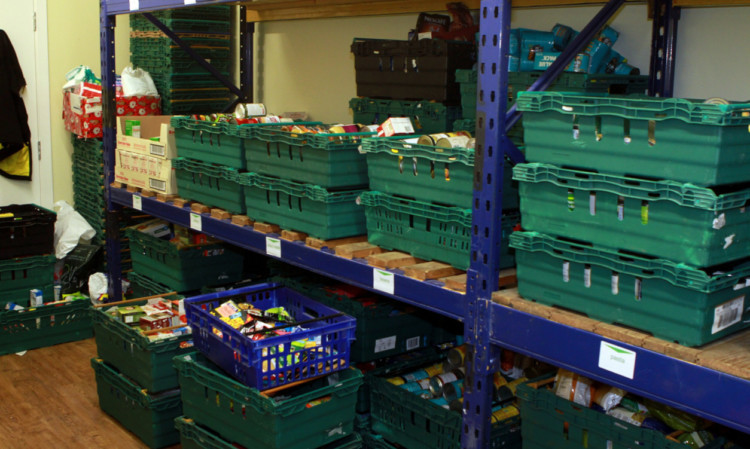Nearly five times as many people used foodbanks and soup kitchens in the six months to September than during the whole of 2011/12, according to a Scottish Government report.
Trussell Trust emergency facilities fed 23,073 people between April and September compared with 5,726 in 2011/12, the overview of food aid provision by the Government’s social research unit found.
Over a third (6,608) of their users this year have been children, while Glasgow facilities also saw a considerable number of destitute migrants, mainly failed asylum seekers.
Nearly a fifth (19%) used a food bank because their benefits changed in April following the UK Government welfare reforms, up from a tenth in 2011/12.
Over half (52%) used foodbanks due to benefit problems in the 2013 period, up from around four in 10 (43%) in 2011/12.
The report states: “Providers who participated in the study were in agreement that welfare reform, benefit delays, benefit sanctions and falling incomes have been the main factors driving the recent trend observed of increased demand for food aid.”
It adds: “Soup kitchens in Scotland are used mainly by homeless people who also tend to have long-standing issues, such as substance dependency or poor mental health.
“Foodbanks are mainly used by people who are housed but who have little or no income.
“Unlike other locations, Glasgow City also has a third category of clients: destitute migrants. This group tends to be homeless or threatened with homelessness and mainly comprises asylum seekers whose application for asylum has been rejected. Destitute migrants use both foodbanks and soup kitchens.”
First Minister Alex Salmond said: “At this time of year, in particular, it is absolutely unacceptable that anyone in a country as prosperous as Scotland should have to rely on food banks.
“The Scottish Government has provided an additional £9.2 million to the Scottish Welfare Fund. This means that local authorities have the capacity to award an extra 5,600 community care grants and more than 100,000 crisis grants this year to help those who need it the most.
“With the publication of our research, we can now understand more about the extent of emergency food aid in Scotland, and that welfare and benefit changes are a major cause.
“The UK is already one of the most unequal societies in the developed world, and the UK Government’s welfare cuts programme unfairly impacts on some of the most vulnerable members of our society.
“I urge the UK Government to publish their long-delayed research into the growth of foodbanks now, to illustrate the impact of its welfare reforms. UK ministers need to account for the impacts of their welfare decisions which are driving so many into food poverty.
“If Scotland were to become independent, we would have full control of the welfare system. Only then would Scotland have the powers needed to guarantee that our most vulnerable families and groups are protected.”
Ewan Gurr, Scotland development officer at The Trussell Trust, said: “The Trussell Trust welcomes the Scottish Government’s willingness to research the growing issue of food poverty in Scotland. Good policy that prioritises support for those in greatest need can only be achieved by knowing the true scale of the issue and what the underlying causes are.
“In Scotland, the number of foodbanks operating as part of The Trussell Trust has grown from one to 43 in little more than two years and we have seen five times the number of people using Scottish Foodbanks than we did this time last year.
“The number of men, women and children living on a financial knife-edge due to a lethal cocktail of rising living costs, welfare reform and minimal employment opportunities is unacceptable and it for these reasons that we welcome any effort to focus on the issue of hidden hunger and seek creative solutions.”
